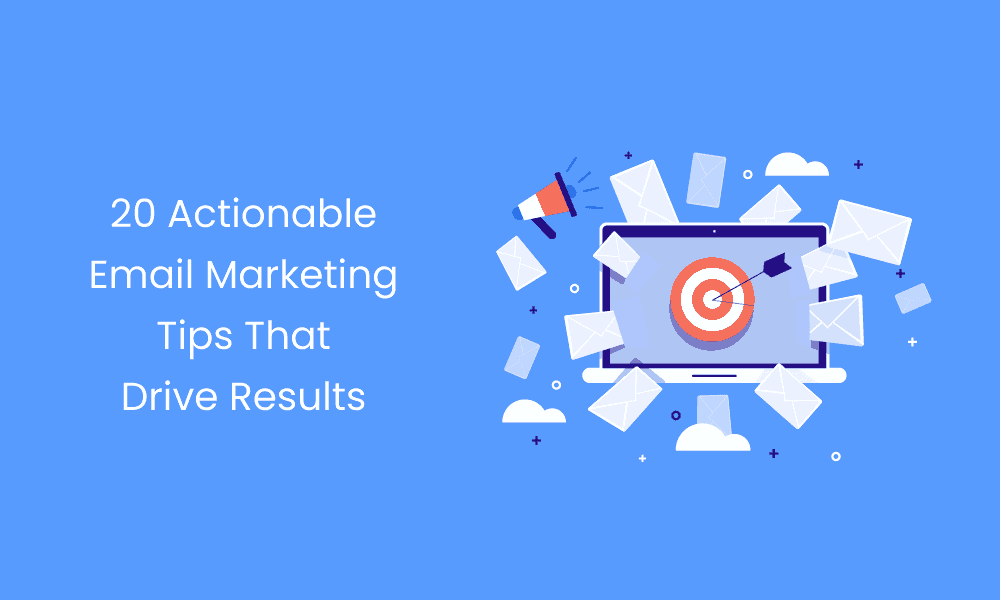It’s an unfortunate fact that people are becoming less and less responsive to traditional advertising.
They have so much information coming at them from all directions, they don’t have the time or inclination to pay attention to ads.
That leaves businesses with two choices: either try to cut through the clutter by making their ads louder and more intrusive or find a new way to reach out directly to customers and prospects in a personalized way.
The best approach is email marketing for one simple reason: it puts you in direct contact with your prospects, giving you the chance of establishing a long-term relationship by sending them valuable content on a regular basis.
And because every business has its own unique personality and story, email marketing allows you both room for creativity in the messages you send to customers and a sense of immediacy because they know there’s a real person behind every email.
But to see great results, you have to have a well-developed email marketing strategy, with an action plan.
In today’s blog, we’ll share some of the top email marketing tips to improve your email campaign and customer engagement results.
Table of Contents
Why is Email Marketing Still Relevant?
In the age of disappearing stories, time-bound messages, an influx of social media posts, no other channel has the longevity of email.
There are more than 4 billion email accounts on the web and an email address is still the gate pass to other websites and forums.
Another reason why inboxes are still the best way to reach an audience is that email is the only form of communication that doesn’t rely on an algorithm.
Facebook and Instagram limit the number of posts a customer can see; paid ads are the only posts that reach a wider audience.
For an overview of the best affordable email marketing tools, check out this video:
Email marketing is also not a monopoly. There is no single entity that controls the mechanics of this digital marketing channel. Your subscriber list is an asset that’s free from algorithm-controlled feeds.
It’s worth mentioning that email marketing is no longer about one-size-fits-all mass mailing.
Instead, modern email marketing focuses on segmentation, consent, and personalization. And most importantly, email lets you be highly personal with your subscriber list as well as potential customers.
Here are a few reasons why you should consider using email marketing for your business.
It’s Highly Adaptable
Email marketing gives you the option to segment contacts on various criteria such as age, gender, location, buying pattern, etc, and send personalized emails.
Personalization is not only limited to using the first name. You can even personalize the body content based on the historical data of customers, such as their behavioral patterns, purchase history, etc.
It’s Cost-Effective
Email marketing is by far the cheapest marketing channel of them all.
You just need to build an email list and have a full marketing campaign at your disposal.
Read also: 8 Best Email Marketing Software for eCommerce in 2023
How Do I Build a Subscriber List?
Before we get into the actionable email marketing tips, you first have to understand the importance of an email list.
If you already have a subscriber base, feel free to jump to the next section. For those who are still building one, there’s something to learn here!
For a successful email marketing campaign, an engaged subscriber list is a must. These are the people who signed up to receive content from you — they want to know more about your products and are open to receiving emails about them.
To build a subscriber list, you must:
- Use a signup form on your website. Your website is the best source for new subscribers, especially if they’re interested in your product or service. You can offer a freebie such as an e-book or a template and ask them for their email address. Additionally, you can also send newsletters and ask them to opt-in for that.
- Take advantage of your social media profiles. Share signup links for discount codes or promotions.
- Chatbots for lead generation. Install a chatbot that encourages potential customers to leave their emails. Combine this with a quality email address finder to get only valid email addresses.
- Be direct with your reason for asking their email address. This is the best way to build credibility and customer trust. If you’re asking for their email address to send them newsletters, then send them only newsletters. Don’t send them direct or promotional emails if they haven’t permitted that. Setting these expectations also makes it easy for you to understand which content to create.
- Make it easy to unsubscribe. Your goal is to build a list of people who truly want to engage with your business. By making it easy to opt-out, you’re giving them a choice and also making your list cleaner. You should add an unsubscribe list or button at the footer of every email.
👉Discover the most effective opt-in email strategies that will transform your subscriber list in our detailed article! 📈
20 Actionable Email Marketing Tips for High ROI
You can optimize your email marketing strategy by focusing on these four major components:
- Subject lines
- Main content
- Email design
- Automation
Let’s get into it.
Subject Lines Are Key
A good subject line is what separates your email from the clutter in your customer’s inbox. But how can you write great subject lines?
1. Personalize your subject lines
You want to make sure that your emails are targeted towards your subscriber segments. Personalization helps make the relationship a bit more informal — it also makes your subscribers feel like they’re hearing from a person rather than a corporation.
You can personalize the email based on what is most relevant to the specific subscriber base, and where they are in their respective buying journeys.
2. Keep it short
Usually, your customers will read emails on their phone. All the creativity in your subject line will go to waste if they can’t read it. Generally, it’s better to keep it short and sweet — shorter subject lines can also pique curiosity and increase click rates.
Morning Brew, for example, uses only 5-6 words in their subject lines.
3. Avoid spam words
Phrases such as “buy now!” or “act fast!” trigger an email services’ spam filter and that can negatively impact your email delivery rate. It can be tempting to use those buzzwords, but subject lines should lean into generating interest rather than urgency.
4. Don’t ignore preheader text
This isn’t strictly a subject line tip, but we recommend that you don’t overlook the importance of preheader text. It’s the short text that shows up under the subject line in an inbox and works as an extension of your subject line.
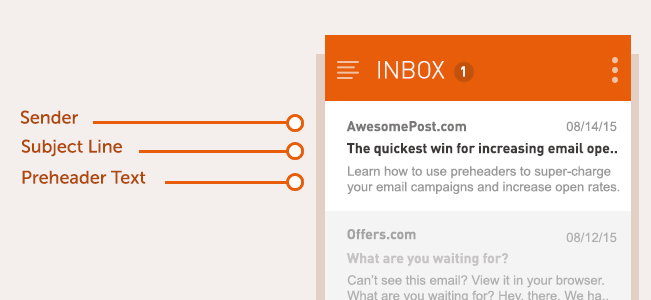
5. Do A/B testing
A/B testing can help you figure out what your customers like best. Split your audience list into half and write two separate subject lines for each segment.
You can conduct A/B testing over a period of time and analyze the results to pinpoint what works best with your audience.
That way, you can communicate with them more effectively and improve the success of your email marketing campaigns.
Read more: 14 Best Email Marketing Growth Hacks to Boost Your Business
The Importance of Good Content in Email Marketing
The content you use in your email will determine whether your customer will click on the next email or not.
1. Keep it brief
Do you read every word of every email? The reality is most of us skim through emails, looking for key points to decide whether to act.
Sending longer emails just makes it harder for the recipient to glean the main message. A better approach would be to summarize and provide a link where readers can learn more.

2. Align your subject line and email content
If you don’t follow through on what was promised in the subject line you will damage your credibility.
The text of your email copy is your chance to continue the conversation and build it out to your call to action. Beware of using difficult words, “market-speak”, or technical jargon.
Instead, write simply and conversationally while keeping your content powerful and to the point that helps grab and keep readers’ interest.
Your copy conveys personality and tone. Emotion is one of the key elements to creating successful online interactions.
In developing your tone of voice, you get to:
- Link back to your business.
- Reinforce the value your visitors desire, such as usefulness, dependability or entertainment
- Make your site copy more enjoyable to read
- Evoke positive feelings that they begin to associate with your brand
Read also: 14 Key Email Marketing KPIs Every Marketer Should Master in 2023
4. Offer something of value
If what you’re offering holds no value to your readers, it doesn’t matter how good the copy is. Ask yourself:
- Is this worth the readers’ time to look into?
- Is there something else that could add value to the email?
- Does the email content clearly show an understanding of their needs?
5. Keep the focus on benefits, not features
You may know the value of your offer, but your customers don’t. So, you need to explain it to them.
Let your readers know what’s in it for them.
Talk about the benefits of using your products or services, as opposed to just listing out the features. This will help your readers understand why they should act.
Make your CTAs compelling and catchy — you want your customers to feel like there’s a reward or an opportunity waiting for them once they click on the button.
Read also: 2023 Guide to Email Marketing for eCommerce
5 Design Tips For Visually Appealing Emails
Design is important, too. Even the most well-written copy will fail to convert if the email design distracts from the message.
1. Organize your content
Once you craft a killer subject line and decide what you want to say, you need to create an email that can be viewed on a variety of devices and is easily scannable.
We recommend that you organize your content in blocks — place the logo/header at the top, separate the content into sections, and add a footer.
Keep the most important information above the fold and use text formatting to highlight crucial points to help with quick scanning.
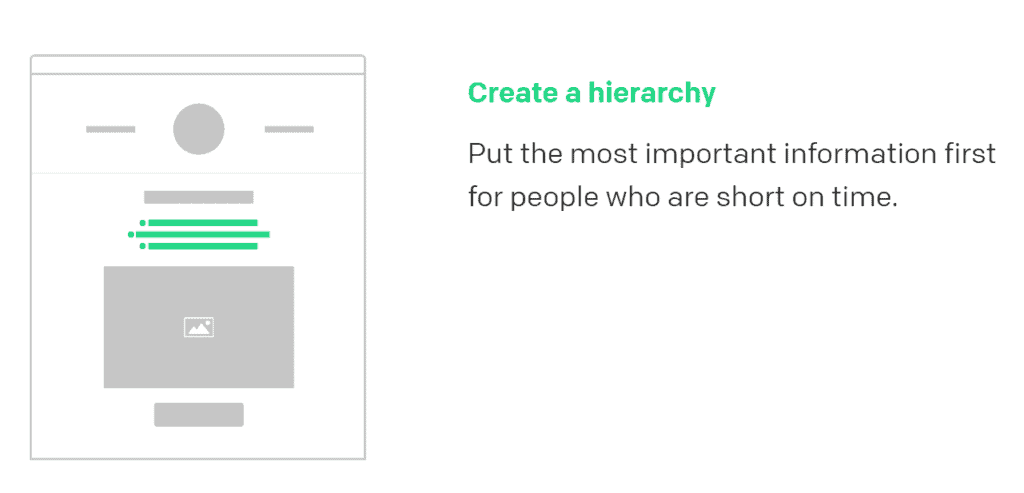
When you’re designing an email, always aim to please the customers that have a low attention span.
That’s why it’s important to place the call to action up high in your email.
Moreover, your CTAs should be large, recognizable, and clickable. Make it easy for even beginner-level audience to read and click through.
2. Create and use consistent branding assets
Logos, headers, and footers are just some of the branding assets that you might use repeatedly on different email campaigns.
To minimize the content creation process, you can create these assets and have them stored in a library.
You can also create templates from scratch or code your own to ensure that your basic layout is consistent across different emails.
3. Add relevant images and videos
The images in your email must be related to your copy.
This is especially important as most email clients will disable images by default, and so, for a recipient to enable the images, the copy and images must be in sync.
Shoot for at least an 80:20 text-to-image ratio; a single image email will most likely trigger the spam filters.
Make sure that all videos, images, and GIFs are optimized for a smoother user experience.
Read also: Make No Mistake: Email Marketing Automation Best Practices
4. Use fonts wisely
Stick to one font style for the whole email to ensure readability. The font size is important as well — use at least a 12-point font for shorter emails and 14-point font for longer emails.
The font you use will be tied into your larger brand identity, so make sure that the font styles are templatized to avoid inconsistency.
5. Keep CTAs clear and prominent
Most of your readers will likely only view the section of your email that is on the first screen — meaning, they won’t scroll further.
It is here where they will make judgments about whether to read on.
Don’t exceed more than three CTA links — the more you add, the more cluttered the email looks.
Use Automation For Email Marketing
Now that you’ve drafted your copy and designed a visually appealing email, you should focus on creating a process that helps streamline all email marketing steps.
This is where automation comes in. Email automation can help you create targeted, user-based campaigns that keep your customers engaged and interactive.
1. Optimize your email sending frequency
Smart marketers don’t rest on past successes. They continually optimize their email marketing strategy based on the latest performance data and evolving customer preferences.
You should routinely review your email marketing campaign data to determine:
- What email frequency works well
- What time of day you should send your emails
- Which days of the week work best to maximize open rates
- How often you should send emails and what content works best
- If open rates are dropping once a certain number of emails are sent
By automating this process, you can get consistent results over time and more accurate data.
2. Schedule your emails
When you send an email is just as important as what you send in an email. Scheduling your emails helps you engage with your customers consistently and systematically.
If you have customers in different time zones, automating emails will ensure that they get your message in their inbox at the right time.
Read also: Email Anatomy 101: Essential Email Parts You Shouldn’t Ignore
3. Segment your email lists
The people on your email list will have unique needs, interests, and backgrounds.
Sending the same message to all these people won’t evoke the same level of interest and response from each one.
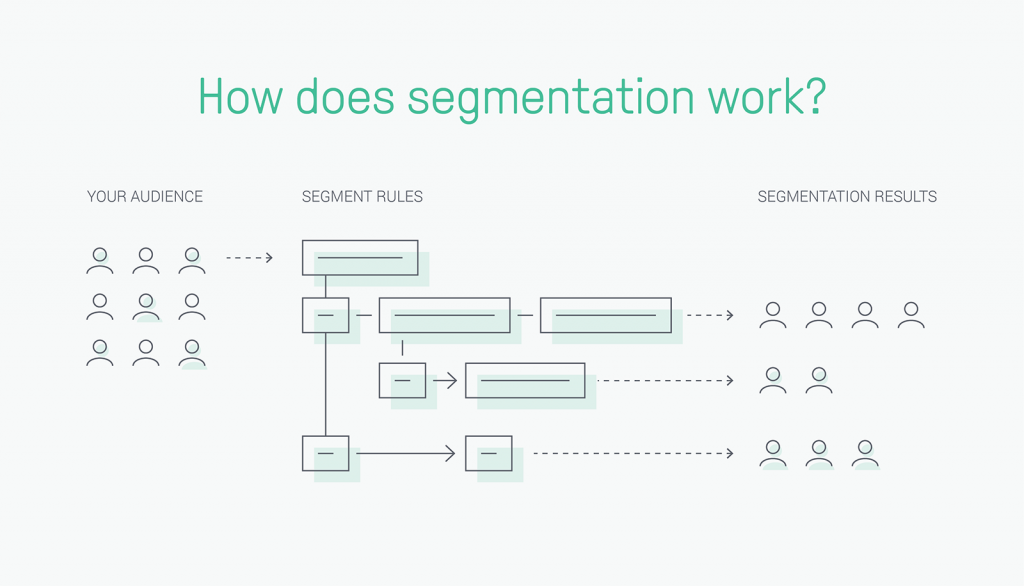
A better strategy would be to break your list down into groups with certain common characteristics shared by your ideal clients.
You can automate audience segmentation based on criteria such as past user behavior, location, demographics, purchase history, etc.
You don’t have to manually update the list every time — use email automation software to automatically segment your subscribers into the right lists based on their actions and the tags you give them.
Read also: Master Email Marketing Automation Strategy: Tips & Examples
4. Build targeted drip campaigns
Drip campaigns allow you to nurture customers at every stage of their user journey.
You can automate sending emails based on different behavioral triggers — welcome email, abandoned cart email, reminders, updates, etc.
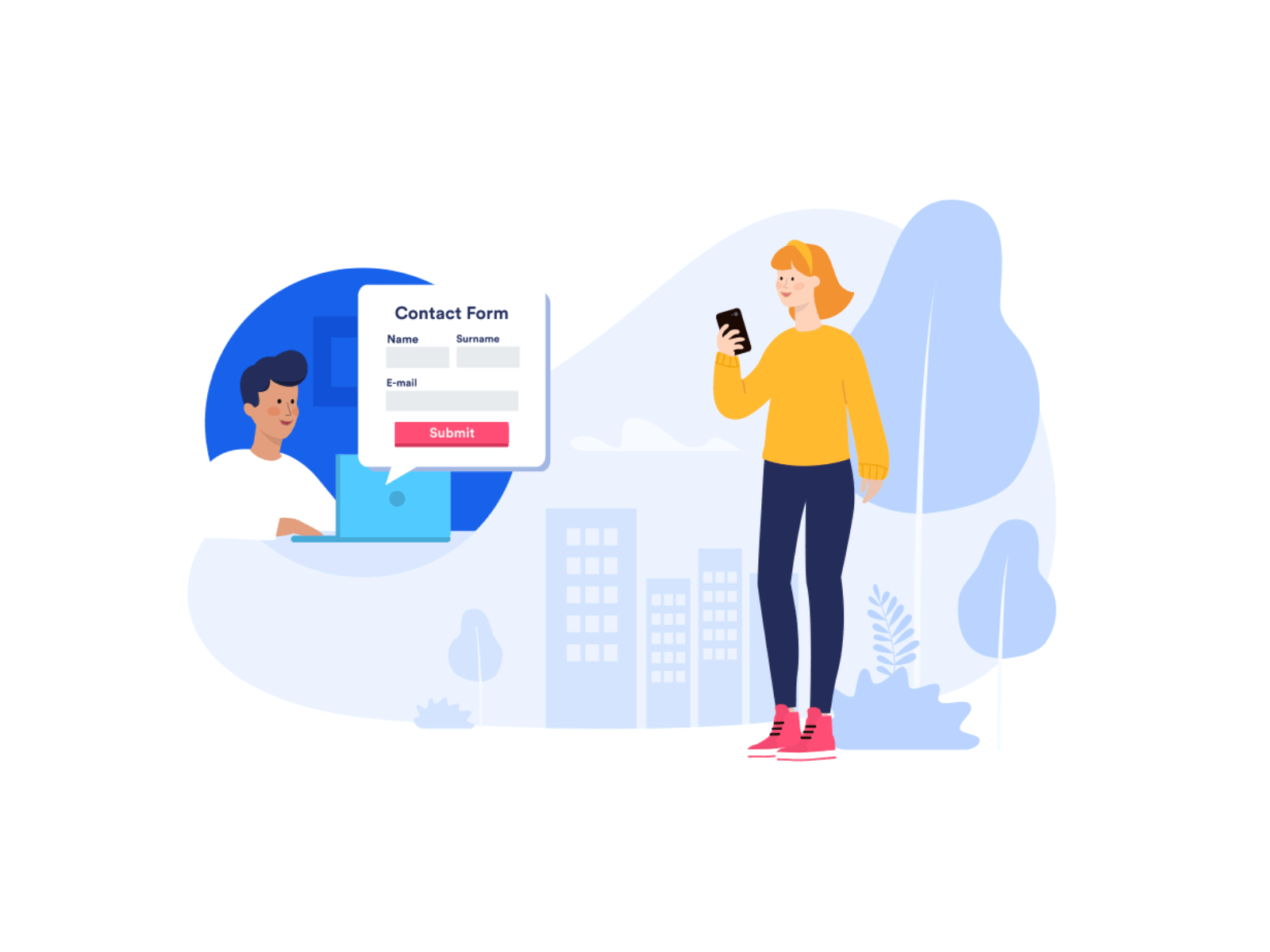
5. Measure campaign success and results
Email marketing automation offers robust reporting options, including metrics like click-through rates, unsubscribes, email subscriber rates, open rates, etc.
With automation, you reduce the risk of human error and oversight. It’s just better to let the software do what people find so hard to.
You can also create reports around specific metrics and analyze them.
This will help you get a better idea of the email campaign’s success rate and effectiveness.
Wrap Up
Email marketing is alive and well and it’ll continue to be so for a while.
Email can help you generate revenue for your business, build profitable relationships, and retain customers — with a very low cost attached.
If you’re looking for a tool that elevates your email marketing strategies, check out EngageBay’s marketing tools, designed for affordable and yet super successful email campaigns.
With EngageBay’s email marketing software, you can integrate several key processes onto one common dashboard. You also get access to:
- A user-friendly drag and drop email builder that lets you create mobile-optimized, visually appealing emails from scratch
- Email automation and lead nurturing options
- A/B and multivariate testing for emails and landing pages
- Advanced reporting options with pre-made and customizable templates
If you want to know more, just sign up for free and we’ll get in touch!
